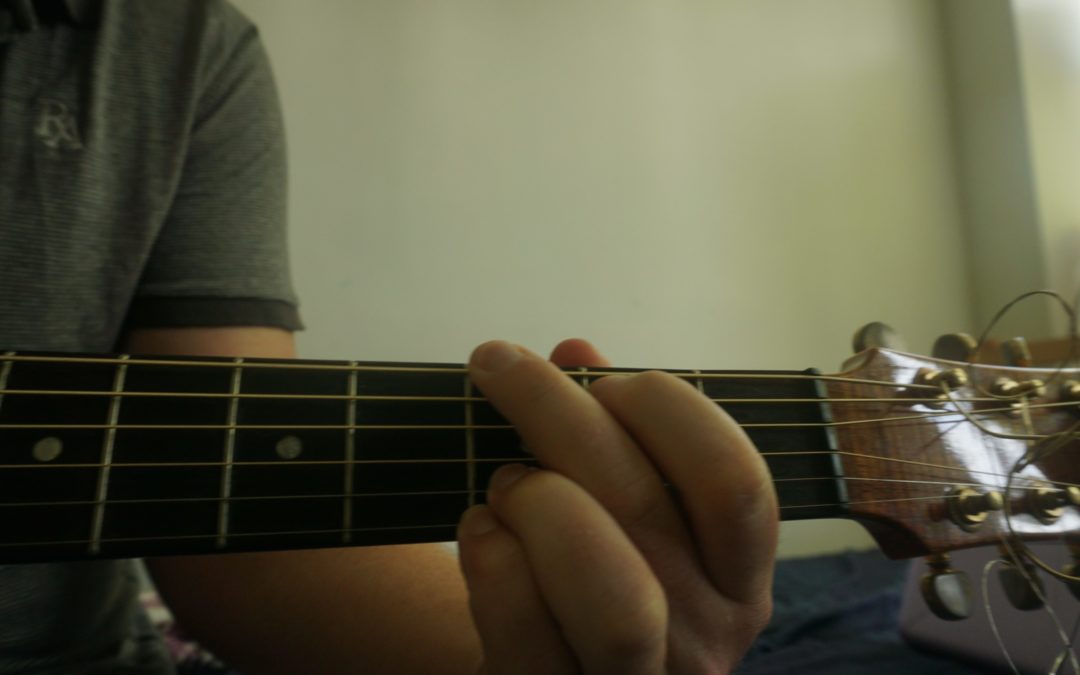In last week's blog we talked about making practice as efficient as possible. We looked at what to incorporate into our practice session to ensure we are getting the most out of the hours we put in.
I promised to create a more practical post with specifics of the best activities to incorporate into your regular practice. This is that list.
Firstly, there is soooo much more that needs to be practiced outside of these 7 things, but these cover a lot of different aspects and what I believe to be the best ways to move forward as a well rounded guitarist.
These are also the things I've personally experienced to be the biggest keys for improvement, as well as what comes up over and over again when I talk to other guitarists.
1. Scales
For a detailed and more fleshed out post as to why scales are so helpful, check HERE. But in short(er), nothing will give you the knowledge of the fretboard, improvement of technique and ability to build up speed that scales gives you. They also serve as a fantastic warm up for everything else.
Practice with a metronome with different sub-divisions - quavers, triplets, semi quavers - and gradually increase the tempo each time you play through the scales well.
2. Composing
Whether or not your ultimate goal is to be a songwriter or composer you should have some type of composing as part of your regular practice. Creativity is an essential skill as a guitarist, whatever capacity you play as a professional. There is nothing that will get your creative skills going like composing something from scratch.
Even on a technical note, this is where you can really explore the limits of what you know and even push that further as you create your own sound.
3. Chords
Chords are an essential part of being a great guitarist, yet many good guitarists
lack their knowledge of chords. The guitar is a chordal instrument with infinite possibilities, shapes, inversions, voicings etc.
A working knowledge of this has helped me get a nose in front of many other guitarists in the past, even those who are more agile in other areas of playing.
You should always be revising the chords you do know, learning new chords and gaining understanding of the theory behind chords. Check out the resources page for a range of chords you may not yet know.
4. Improvisation/jamming
Being able to improvise and jam along is absolutely essential and there is nothing better for this than playing with other musicians. However, it is possible to emulate something similar - either by recording your own rhythm parts or tapping into the endless amount of tracks on YouTube.
This is where your knowledge of the fretboard, creativity and sensitivity to your role as a guitarist all go hand in hand.
This is so great for practicing soloing, and you should do that, but at the same time, it's no longer the 80s and there are soooo many other skills that need to be worked at here. Try creating riffs, different inversions, rhythms, try adding a guitar part to a song which doesn't currently have one. These are a few ideas of how to jam out and will make you an absolute asset when you play with other musicians.

5. Reading
This unfortunately is becoming a lost art amongst guitarists, which is also one reason why it's so good to practice - it will put you ahead of 95% of other guitarists.
I'm talking about manuscript reading as well as chart reading (though the above comment more refers to manuscript). In the professional world, you very often need to be able to pick things up, on the fly, from a piece of paper in front of you, at least in rehearsals. If you are stuck at every point trying to read the music, you will soon be a nuisance and the brunt of every guitarist joke ever.
More so than the professional working context, actually being able to visually understand what you are playing from a score really improves your own timing, pitch and knowledge of the fretboard.
6. Transcribing
This term I use quite loosely. It means writing down what you've learnt by ear. In this context, I do mean that, as this is something I also did a lot of, but I also mean it more loosely to just mean working things out by ear.
Whether rhythm or lead parts, this is an extremely helpful exercise and really gets your ears working, which is what music is all about. This will help your ears be able to instantly work out phrases and chord progressions. This helps a great deal in any creative process as you are better able to externalise what you can hear in your head.
7. Learn songs
I almost left this out as I feel it is what most people would naturally do anyway and is somewhat covered in transcribing. But you should always be learning a new song that is pushing you in at least one way. What you learn from this song can also be adapted and applied to your own creative endeavours.
Thank you for reading, I hope you have enjoyed it! Don't forget to subscribe, comment, rave about this blog to ALL your friends and contact me for lessons or enquiries.
